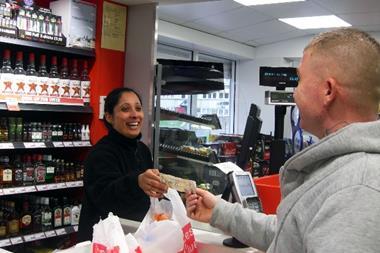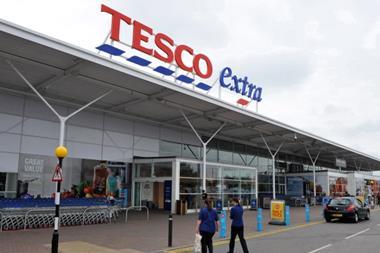The UK’s food and grocery businesses must engage with shoppers on a more emotional level in order to deliver growth, according to new research from IGD.
IGD’s new research looks at shoppers’ feelings in detail by using an emotional gauge developed by research agency ABA. The ‘five drivers’ model identifies clear emotional states: control, desire, belonging, immersion and freedom.
Speaking at IGD’s big debate conference on Tuesday, chief executive Joanne Denney-Finch said: “In a business environment, we pride ourselves on thinking rationally. But let’s stop thinking so rationally all of the time and build our emotional intelligence.
“We’ve tested grocery shopping for all these emotions and it came out okay, but it could do better. It got high scores for ‘control’; scored around halfway for ‘desire’ and ‘belonging’; but didn’t score well for ‘immersion’ and ‘freedom’. That tells us time tends to drag and we’re rarely surprised in a grocery store.”
The study identified online and discount as the most successful in triggering positive emotions, while many shoppers view the biggest retailers as ‘the establishment’. It also cited key market trends in food to go, the demand for fresh food and the importance of new products as a means of provoking positive emotions in shoppers.
Denney-Finch added: “The cook-it-at-home mission versus food to go is usually viewed as a trade-off between price and convenience. But I think the single biggest reason why food to go is surging ahead is the way it engages our emotions. It is fun, varied, immediate, a treat and generally low in stress. Home cooking can be inspiring too, but the centre of an average supermarket is a pretty uninspiring place.
“Food stores will focus more and more on fresh and new products and here emotions really will rule. For suppliers, it means if you’re not fresh and you’re not new, and you’re not bringing excitement or helping the retailer to differentiate, you’re going to get marginalised in tomorrow’s food stores.”
Commenting on the findings, Raj Aggarwal, owner of two Spar stores, said: “I think it is really important to provoke the emotions of our customers, but this needs to be done in the right way - the last thing you want to do is bombard them with interaction and control how they shop.
”I think convenience stores have an advantage over the multiples when it comes to tapping into customers’ excitement and desire and freedom, because we can make changes in store quickly and seamlessly without going through a head office, and we can make sure we introduce new products and address shoppers’ missions whenever we want to create that element of excitement.”

















No comments yet